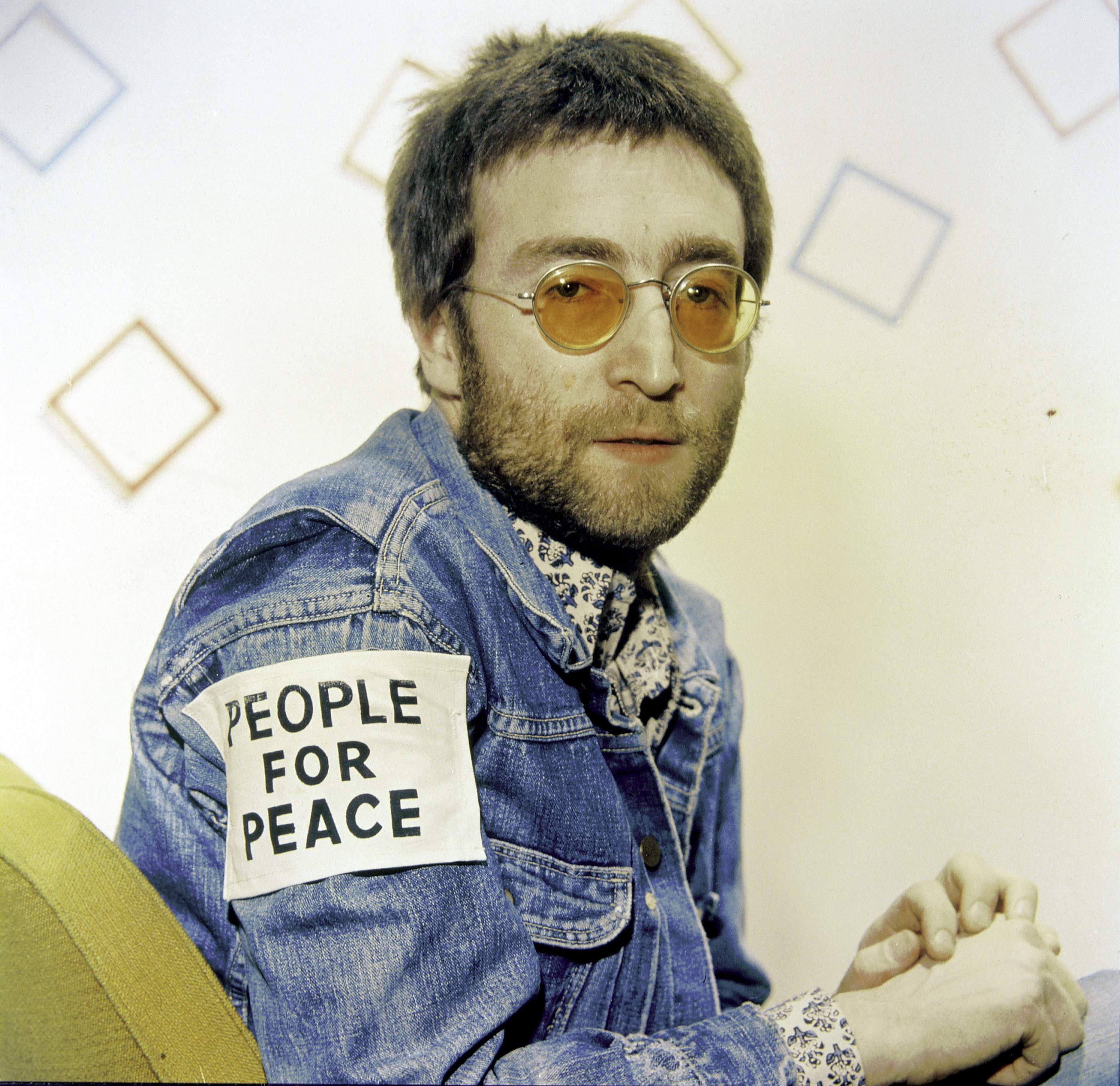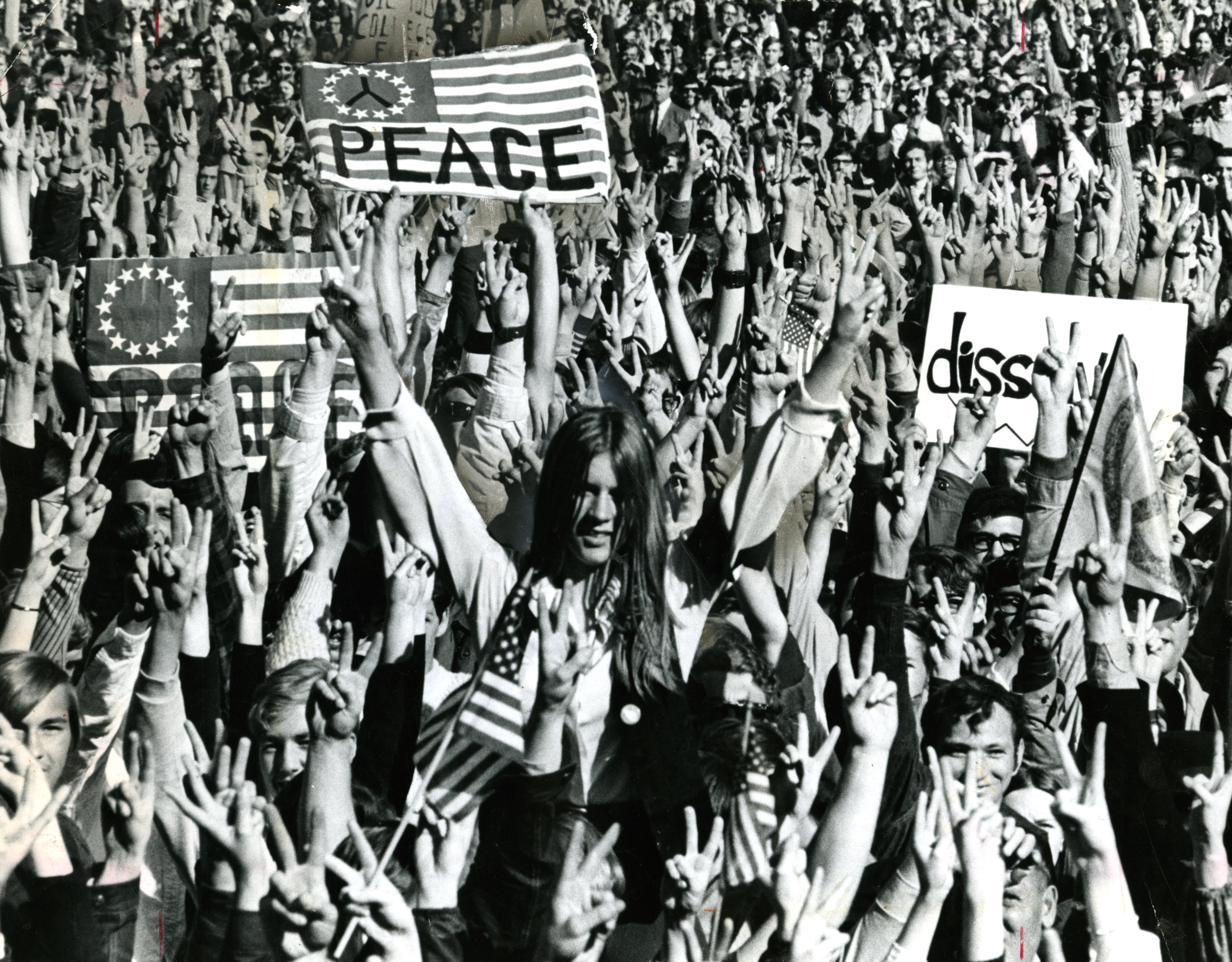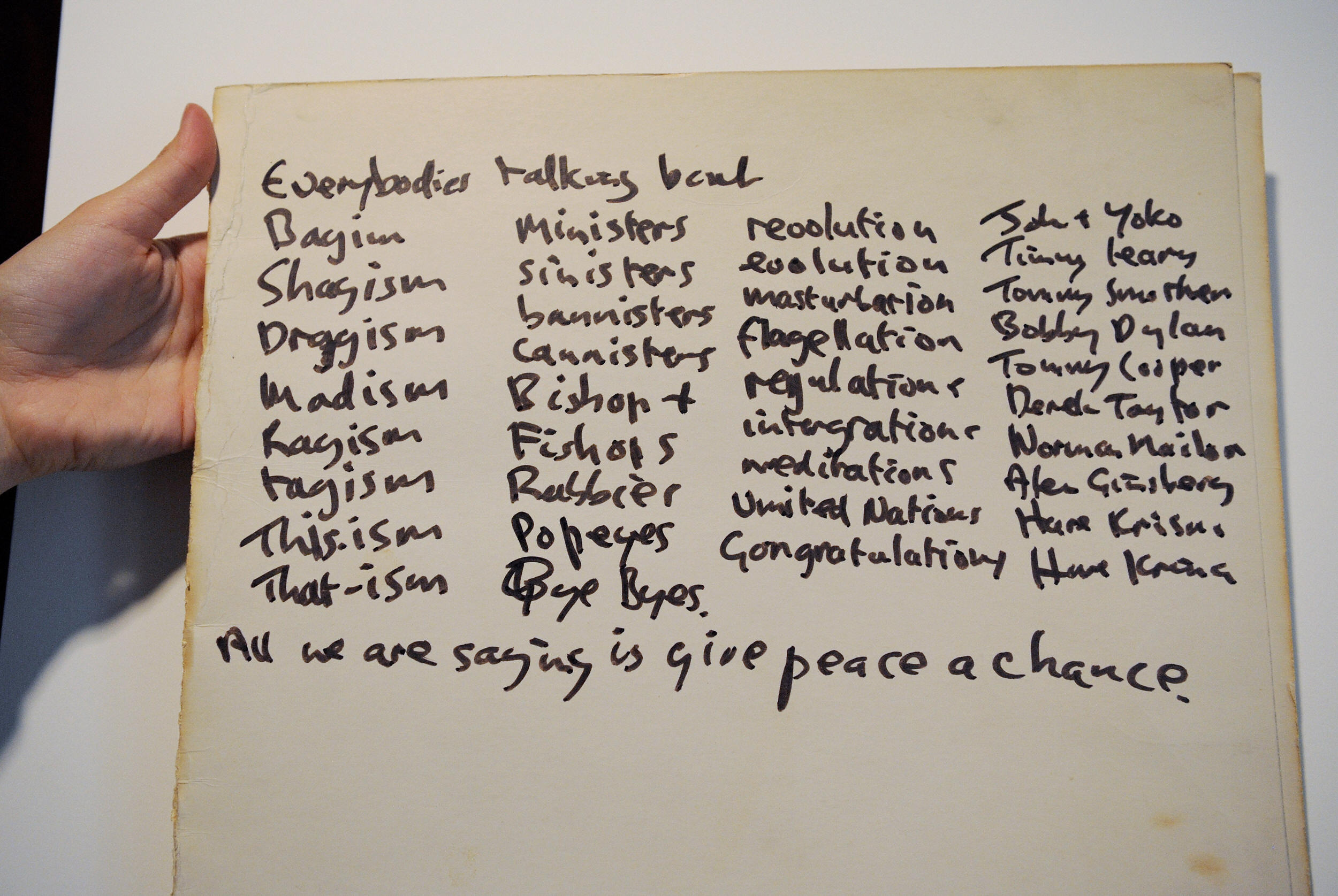John Lennon Said 1 of His Songs Had a ‘Revolutionary’ Concept
During an interview, John Lennon said he didn’t just want to write love songs. He said he wanted one of his classic rock songs to become a “revolutionary” track for workers. In addition, he wanted the song to serve as a warning.

John Lennon knew Vietnam War protesters sang 1 of the Plastic Ono Band’s songs
The New York Times says the Moratorium March was a protest against the Vietnam War that took place in 1969. During the march, Pete Seeger led the crowd in a rendition of a song John wrote for the Plastic Ono Band called “Give Peace a Chance.” In the book Lennon Remembers, Jann S. Wenner asked John about the Moratorium March.
John didn’t remember whether he heard the protesters perform “Give Peace a Chance” on a radio broadcast or watched them perform it on a television broadcast. Regardless, the performance had a big impact on him. John felt his job was to write songs for “the people.”

The former Beatle hoped 1 of his songs would have the same impact as ‘Give Peace a Chance’
“Our job is to write for the people now,” he opined. “So the songs that they go and sing on their buses are not just love songs. I have the same kind of hope for ‘Working Class Hero,’ but I know it’s a different concept. I think it’s a revolutionary song — it’s really just revolutionary. I just think its concept is revolutionary.”
John wanted “Working Class Hero” to connect with workers — but he feared it wouldn’t have the same impact as “Give Peace a Chance.” “I hope it’s about what ‘Give Peace a Chance’ was about,” he said. “But I don’t know — on the other hand, it might just be ignored. I think it’s for the people like me who are working class, who are supposed to be processed into the middle classes, or into the machinery. It’s my experience, and I hope it’s just a warning to people, ‘Working Class Hero.'”
Yoko Ono chimed in, calling the song “fantastic.” John didn’t like that. “No, I don’t want praise, I just — I’m saying I think it’s a revolutionary song,” he said. “Not the song itself, it’s a song for the revolution.”
How John Lennon’s ‘Working Class Hero’ performed compared to ‘Give Peace a Chance’
“Working Class Hero” did not become a hit in the United Kingdom. The Official Charts Company reports the song did not chart in the U.K. On the other hand, The Official Charts Company says “Give Peace a Chance” peaked at No. 2 in the U.K., remaining on the chart for 18 weeks.

Despite this, “Working Class Hero” had a bit of a legacy. A 2005 compilation of John’s work is called Working Class Hero: The Definitive Lennon. In addition, an album called Working Class Hero: A Tribute to John Lennon features a number of John covers by famous artists like Cheap Trick, the Red Hot Chili Peppers, and The Flaming Lips.
While “Working Class Hero” may not have connected with the workers of the U.K., it definitely has a place in pop culture.


